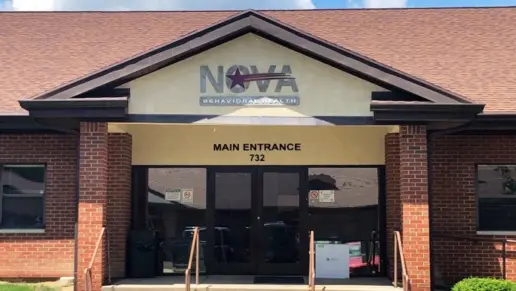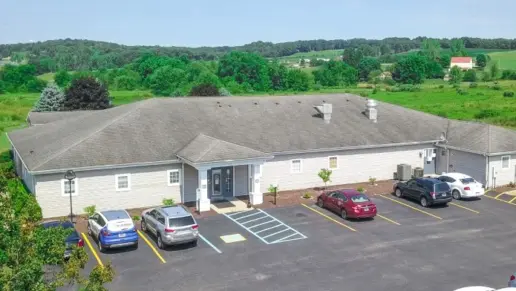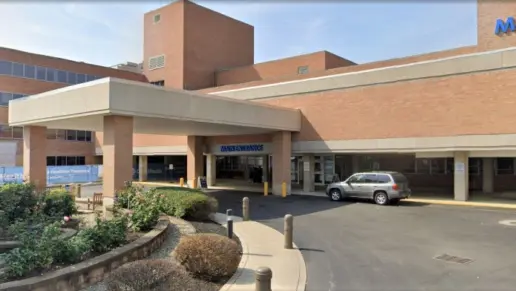About Bethesda Alcohol and Drug Treatment
The Bethesda Alcohol and Drug Treatment Program is located in Cincinnati, Ohio. This is an outpatient treatment program that supports individuals who are struggling with substance use or have a coexisting mental health struggle. They provide care through their intensive outpatient program which meets three times a week.
This program operates as part of TriHealth, a local hospital system. The program has grown over the years and is now the longest running recovery program that operates with a private hospital in the Cincinnati area. They offer both day and evening programs.
Evolving Care
One of the benefits of working with a treatment program that’s affiliated with a hospital system is that you’ll have access to the latest recovery approaches and methods used in addiction recovery. You’ll also be supported by evidence based therapies, including medication assisted treatment and more specialized medical care if you need it.
Established and Experienced Healthcare Professionals
The healthcare professionals here are extremely experienced in the work they do. You’ll get to work with professionals who have the highest level of chemical addiction recovery credentials.
Psychiatrists, physicians, and therapists will work with you through your individualized treatment plan. generally, however, the outpatient program will last six weeks and can follow detoxification which is offered through the hospital system.
If you need more specialized care, you can get connected to supports such as pastoral care, nutritional guidance, pain management, and mental health care.
When you’re in the program, you’ll work through group sessions where a variety of topics are discussed, helping you build the skills you need for recovery.
Latest Reviews
Rehab Score
Accepted Insurance
Other Forms of Payment
Private insurance refers to any kind of healthcare coverage that isn't from the state or federal government. This includes individual and family plans offered by an employer or purchased from the Insurance Marketplace. Every plan will have different requirements and out of pocket costs so be sure to get the full details before you start treatment.
Self-pay involves paying for treatment out of your own pocket. You can use savings or credit, get a personal loan, or receive help from family and friends to fund your treatment. If you don't have insurance or your insurance plan doesn't cover a specific program, self-pay can help ensure you still get the care you need.
Medicare is a federal program that provides health insurance for those 65 and older. It also serves people under 65 with chronic and disabling health challenges. To use Medicare for addiction treatment you need to find a program that accepts Medicare and is in network with your plan. Out of pocket costs and preauthorization requirements vary, so always check with your provider.
Military members, veterans, and eligible dependents have access to specific insurance programs that help them get the care they need. TRICARE and VA insurance can help you access low cost or no cost addiction and mental health treatment. Programs that accept military insurance often have targeted treatment focused on the unique challenges military members, veterans, and their families face.
Addiction Treatments
Levels of Care
 Outpatient
Outpatient
 Medically Assisted Detox
Medically Assisted Detox
 Intensive Outpatient
Intensive Outpatient
Treatments
The goal of treatment for alcoholism is abstinence. Those with poor social support, poor motivation, or psychiatric disorders tend to relapse within a few years of treatment. For these people, success is measured by longer periods of abstinence, reduced use of alcohol, better health, and improved social functioning. Recovery and Maintenance are usually based on 12 step programs and AA meetings.
Drug rehab in Ohio provides comprehensive treatment to address the physical and psychological needs of those struggling with substance use disorders. This may involve inpatient and/or outpatient care.
Opioid rehabs specialize in supporting those recovering from opioid addiction. They treat those suffering from addiction to illegal opioids like heroin, as well as prescription drugs like oxycodone. These centers typically combine both physical as well as mental and emotional support to help stop addiction. Physical support often includes medical detox and subsequent medical support (including medication), and mental support includes in-depth therapy to address the underlying causes of addiction.
Substance rehabs focus on helping individuals recover from substance abuse, including alcohol and drug addiction (both illegal and prescription drugs). They often include the opportunity to engage in both individual as well as group therapy.
Programs

Adult Program

Young Adult Program
Clinical Services
Group therapy is any therapeutic work that happens in a group (not one-on-one). There are a number of different group therapy modalities, including support groups, experiential therapy, psycho-education, and more. Group therapy involves treatment as well as processing interaction between group members.
Staff
Mark C. Clement
President & CEO of TriHealth
Todd Anderson
CFO of TriHealth
Terri Hanlon-Bremer, MSN, RN
Executive VP System COO of TriHealth
Raymond Hellmann, M.D., ABAM.
Medical Director
Kelly Rogan, M.S., LSW, LICDC-CS
Family Program Coordinator, Blue Ash
Sharon Sowders, EDD, LPCC-S, LICDC-CS
Primary Counselor, Family Counselor, Blue Ash
Contact Information
619 Oak street
Cincinnati, OH 45206







